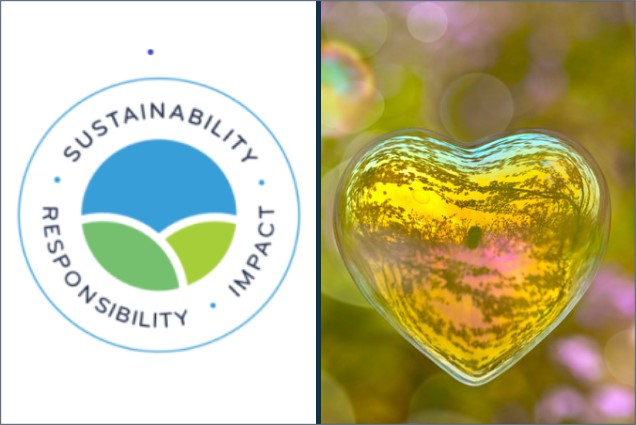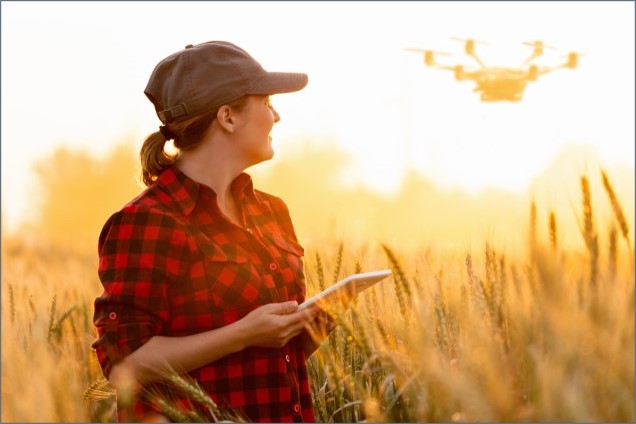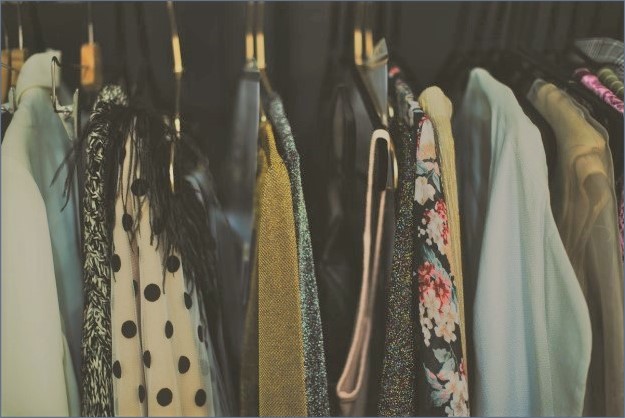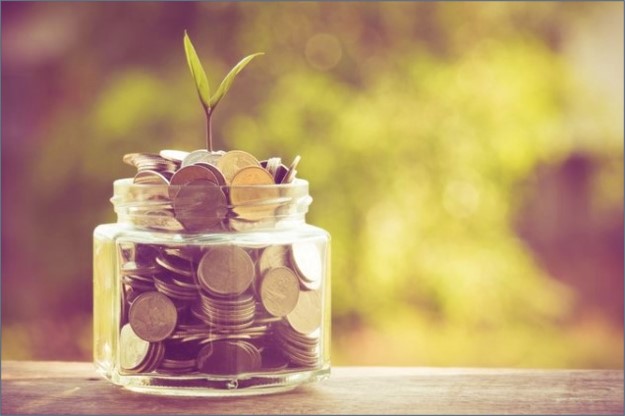Does sustainability play a major role in your personal life? Do you eat only locally grown food, compost organic household waste, and ride your bike everywhere? Or are you fairly new to this topic and find such behavior a bit puzzling?
InterNations introduced our Sustainability Initiative in January 2020, and we officially became a carbon-neutral company about a year ago. Looking back at this milestone, we were interested in what individual team members think about this issue. We’ve asked six of them how they view sustainability in general and what role, if any, it plays in their life. The resulting range of opinions is rather wide — and hopefully thought provoking.
Denise, Feel Good Manager & Head of the InterNations Sustainability Initiative: “Sustainability has an influence on every decision I make.”
My interest in sustainability started very early, back in my teens. This issue is extremely important to me, but it’s more than just a hobby or a topic I’m interested in. It’s kind of an attitude based on my personal values. Considering the challenges that all humans, as a species, are facing right now, it’s actually a matter of life or death. Everyone should be very concerned about sustainability.
As drastic as this might sound, I’m still very positive and motivated. But it’s definitely an issue that influences every single part of my life and a major factor in all my decisions. Whatever I do, I always try to consider my impact on nature and the environment. I even decided to reduce my working hours at InterNations to have more free time for environmental activism and volunteering, mostly on topics such as climate change and animal rights.
Moreover, I am doing my best to curb my consumerism. I no longer go shopping for shopping’s sake, and all my purchases are based on actual necessity. If something is broken, I’ll fix it. If I can’t repair it, then I’ll reconsider if I could perhaps just borrow or rent it for a while. And if I do decide I need to buy something, I always try to look for second-hand items first before exploring sustainable, plastic-free, and/or fair-trade options. I usually take my time to make sure that I’m making the right choice.
***
Stephanie, Team Lead Corporate Communications: “I’m working on a more sustainable lifestyle, but I don’t expect myself to be perfect.”
As a vegan, I’m already used to checking labels all the time. And while making sure that my groceries are free of animal products, I also check if they are healthy enough and if they contain any non-sustainable ingredients, such as palm oil and soy grown outside of the EU.
After all, I can always put the product back on the shelves or into the fridge and look for an alternative. Sometimes, this means going to another shop. Nowadays, I can even order healthy and sustainable food from regional producers, for example, in Germany and Austria. But I only buy these kinds of supplies in bulk. It wouldn’t be very eco-friendly to order things online every other week!
After our “Plastic Is Not Fantastic” team month at InterNations, I’ve also drastically reduced the amount of plastic I buy. But I haven’t managed to cut it out entirely — I hope this will become easier for me soon.
The bottom line is: each and every one of us can lead a more sustainable life. Of course, I’m still miles away from a zero-waste lifestyle. But I don’t expect myself to be perfect in this regard. That’s just demotivating and would probably lead to me giving up instead of trying to change gradually.
In the beginning, I was stepping out of my comfort zone with a lot of things I consider completely normal today. So, if you now leave your personal comfort zone just a bit, you might be able to take bigger steps later. I don’t like giving unsolicited advice, but I think it’s important to get educated on sustainability. The rest should come naturally.
***
Malte, InterNations Founder & Co-CEO: “As an entrepreneur, I can take sustainability into account in my business decisions.”
Personally, I think that sustainability — especially climate change — should be among our top priorities as a society. Without a healthy planet, life as we know it might no longer be possible one day. Individuals obviously don’t have the same impact as governments, corporations, and other organizations. But everyone can do their bit — be it by volunteering, getting involved in politics, or simply leading a more sustainable life.
After joining the Leaders for Climate Action campaign, I calculated my family’s carbon footprint. We have started to systematically reduce our carbon emissions. What we can’t reduce — at least not yet — I try to at least offset by donating to high-quality climate protection projects.
I’ve also been reading up on this topic. For instance, I found Bill Gates’s book How to Avoid a Climate Disaster really interesting. He tries to come up with a strategy that looks into technological solutions for key sectors, such as energy production, transportation, manufacturing, etc. Being an entrepreneur myself, this is an approach I find very intriguing. I’m also interested in what for-profit social enterprises and green-tech start-ups, such as drone-based reforestation companies, are doing to address the issue.
In my role as one of InterNations’ co-CEOs, I can also take sustainability into account in our business decisions. I think it’s great to have someone like Denise on board, someone who’s so passionate about sustainability. We want to support the InterNations Sustainability Initiative as best as we can.
***
Kamila, Senior Business Analytics Manager: “Buying less and donating what I don’t need is the way to go for me.”
Actually, it was some health issues that got me interested in the topic of sustainability in the first place, rather than the idea of saving our planet. This is why, for example, I have swapped or am now doing without certain cleaning products or cosmetics. I still don’t get why eyeshadow palettes or other kinds of makeup contain substances that can mimic human hormones and disrupt our hormonal balance!
Other than that, I think the “fast fashion” mindset is a huge issue when it comes to leading a sustainable life, especially among lots of teenagers and younger adults. Of course, I’m also happy when I find nice, good-looking, and affordable clothes in my size. But there’s really no need to buy clothing that will barely last a season! There are some fast-fashion stores where I simply refuse to shop. There, everything has a chemical smell to it, which feels really unhealthy to me. But there are also other cheaper high-street clothing chains where I’ll find decent-quality clothes that will easily last for several years without wearing out.
To me, products don’t necessarily need to be labelled as sustainable. It’s buying less and donating what I don’t need that makes the difference. I also need to feel comfortable with what’s in there. That’s the way to go for me.
***
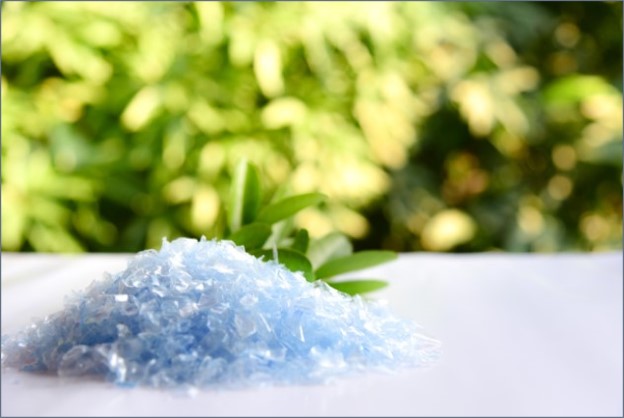
Andre, Software Engineer: “For me, sustainability means finding better technological solutions.”
Of course, I‘m interested in sustainability. For example, I believe that we need to get rid of fossil fuels as an energy source. However, some other aspects of a sustainable lifestyle seem to me poorly implemented or simply incomprehensible.
For instance, I don’t understand why I need to put my household waste into what feels like 215 different containers. I will obviously separate some things such as glass, biological waste, and used clothes. But how do I manage to distinguish clothes made from natural fibers from synthetic ones in order to avoid or properly recycle plastic waste? That‘s not my job! My job is to write code, not to become a recycling expert during my time off.
And speaking of plastic waste: I don’t get some of the proposed solutions for the problem of plastic pollution. Why should we get rid of plastic altogether instead of finding ways to reuse it? It is a great invention in many ways, very convenient and cheap. For example, there are already bacteria that can consume plastic waste. In several countries, road pavements and tiles are made of recycled plastic, etc. Instead, in the EU, we just prohibit plastic straws, so every beverage now tastes of wet paper and glue.
I’m totally in favor of sustainability, but we should tackle this issue properly. For me, this includes finding better technological solutions.
***
Kalena, Junior Corporate Communications Manager: “I try to do what I can within my budget.”
Since moving to Germany, I have gradually changed my personal attitude towards sustainability. By comparison, the US isn’t the most sustainable place, and there is a lot of waste. I was surprised by many things when I came here, such as the Pfand (deposit-return) system for cans and bottles, as well as the extensive recycling system. It took me a while to get used to this — and I needed to buy a lot more trash containers than I was used to — but I love it now. I even have some strong opinions on the accessibility of recycling bins!
Other than that, I find it difficult in some ways to make sustainability a bigger part of my everyday life, mainly due to financial reasons. Some activities, such as taking reusable cloth bags to the grocery store, do save money in the long run. However, others, such as shopping exclusively at fair-trade or zero-waste companies, can quickly get really expensive.
Personally, I also find it frustrating to see that the vast majority of pollution and other environmentally harmful practices comes from large corporations. So, I think it’s more worthwhile to change legislation to curb pollution and create more eco-friendly laws. But I am not sure how to make an impact on this. That’s why I do what I can within my budget.
Image credit: InterNations / Rawpxel / iStockphoto
